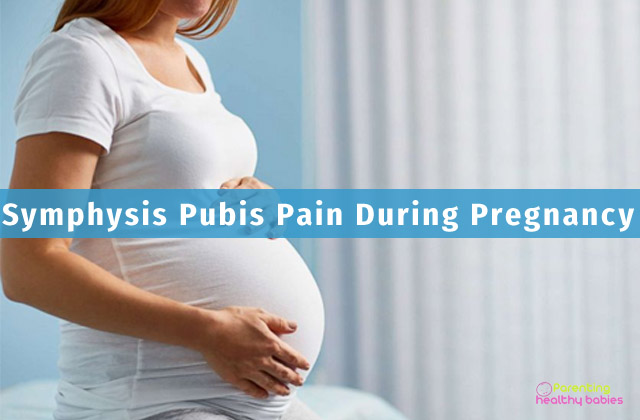Is it normal to have cramps?
Abdominal pain during pregnancy can be a regular part of the process as your body changes to accommodate your growing baby. While there are many harmless causes of abdominal pain during pregnancy, some may be more severe. As an expectant mother, it is important to educate yourself on all potential causes, so you can recognize symptoms that may cause concern.
Causes of cramping or abdominal pain during pregnancy cramping typically occurs when the uterus expands causing the ligaments and muscles that support it to stretch. It may be more noticeable when you sneeze or cough or change positions during the second trimester. A common cause of cramping is round ligament pain, the round ligament is a muscle that supports the uterus and when it stretches, you may feel a sharp stabbing pain or a dull ache in your lower abdomen. Cramping that is relatively minor and happens now and then is probably nothing to be worried.
5 Weeks Pregnant Cramping and Backache: Causes, Risks and Treatment
Six Common Causes for Cramps During Early Pregnancy
Hormones
First are the hormones your body is producing. A flood of hormones, some of which cause cramps, as the body prepares to expand and change virtually. Every organ system in your body needs to adapt, to cope with the increasing demands that your pregnancy will make on it.
Implantation
The second is implantation, when the newly fertilized egg implants into the lining of the womb, a woman can experience implantation. Sometimes accompanied by a very small amount of bleeding.
Uterus
The third is your uterus; the uterus begins to experience changes as soon as the implanted egg burrows into the lining. As the uterus stretches and expands, some women experience aches and cramps. These pains can also be referred to the groin and the hip area. These cramps reflect changes in the pelvis, in particular, your growing uterus. It can be perfectly normal to experience menstrual type cramps in early pregnancy because this growth occurs where the ligaments and muscles attach and support your womb to the internal abdominal wall.
Gas and constipation
Elevated levels of the hormone relaxing cause the body’s muscles to relax including those that make up the digestive system which slows down during pregnancy. This can result in excess gas and constipation which produces a wide range of pains, pressures, bloating and sometimes cramping. The transient time to the intestine can increase by 30 %. This allows gas to build up easier and creates bloating, burping and of course flatulence gas during pregnancy.
Ectopic pregnancy
Cramping and pain may occur on either side of the pelvis and be accompanied by nausea, spotting, and dizziness. Ectopic pregnancy is a medical emergency and you need to see a doctor right away.
Corpus luteum
The sixth is the corpus luteum cyst. This is the cyst pregnancy and it is from this structure that your egg was released and then subsequently fertilized. This cyst plays an important role in the early weeks of pregnancy. Corpus luteum cyst produces hormones that support the pregnancy in the early weeks. This corpus luteum cyst can vary in size and the larger ones can cause some tenderness and cramping. The presence of this cyst is usually assessed during your first ultrasound scan. Women and early pregnancy will experience quite a few strange and even uncomfortable sensations, twinges and cramping each pregnancy can be quite different.
When to see the doctor?
There are some serious causes of abdominal pain during pregnancy. Vaginal spotting accompanied by mild or sharp cramping can be a sign of a miscarriage. If you have severe cramping and/or heavy bleeding contact your doctor immediately.
Preeclampsia, this is characterized by blood pressure along with protein in your urine. Severe preeclampsia can cause intense pain in your upper abdomen. Contact doctor immediately in case of severe pain.
Ectopic pregnancies can cause painful cramping and is a serious medical condition that must be treated by your doctor.
What are the risks of cramping at 5 weeks pregnant?
Ectopic pregnancy
This type of pregnancy happens when the fertilized egg implants outside of the uterus ectopic pregnancies can cause painful cramping and contact the doctor, as this is a serious medical condition.
Miscarriage
Vaginal spotting accompanied by mild or sharp cramping can be a sign of a miscarriage. Although some pregnant women who have spotting and cramping can go on to have healthy pregnancies.
Preterm labor
Preterm labor increase pressure, abdominal pain and cramping can be a sign of preterm labor as your cervix begins to dilate before 37 weeks.
Urinary tract infections
Lower abdominal pain and painful urination may be symptoms of a urinary tract infection.
Preeclampsia
Another cause for serious concern is a condition called preeclampsia. Preeclampsia can occur at any time after week 20 of pregnancy. The preeclampsia foundation explains that at least 5 to 8 percent of all pregnant women are diagnosed with preeclampsia.
Preeclampsia may lead to pain in the upper-right side of your stomach. This can increase your risk of developing placental abruption, a condition where your placenta breaks off from the uterine wall before delivery. Your doctor will check your blood pressure and urine at every appointment until you deliver your baby. Protein found in your urine can be a sign of preeclampsia.
Treatment of cramping at 5 weeks pregnant
- Sometimes a change of position is helpful .lying on the other side, getting up and going for a walk, stretching and general body movement can help.
- Having a warm shower, loosening any tight or constrictive clothing or a gentle tummy massage can be useful.
- Go to the toilet. Occasionally, a full bladder or bowel can contribute to uterine cramping. Freeing up some space can make all the difference.
- Avoid constipation. Drink plenty of water, eat lots of fresh fruits, vegetables and avoid highly processed starchy foods. White bread, rice, and pasta can cause problems with constipation in many women.
- Sit or lie down for a while and make a conscious effort to relax. Muscle tenseness is usually eased by relaxation and some deep breathing exercises.
Conclusion:
So consider these bumps along the road of an amazing journey. Please note that if cramping is severe or prolonged this may not be normal and you must call your doctor immediately.













